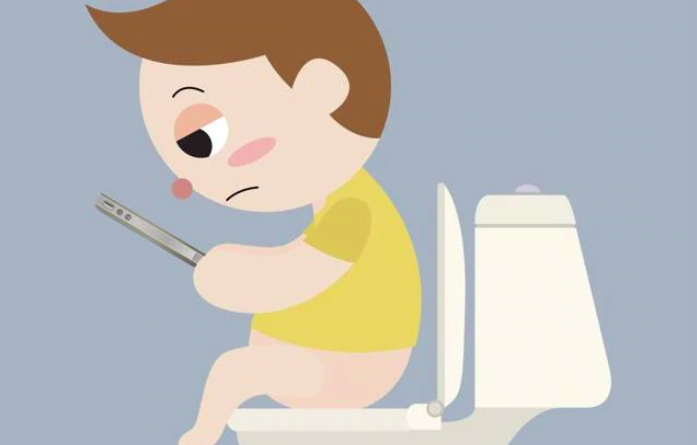HEALTH: Sitting with Smartphones in Toilet can cause Piles
Sitting too long and straining too much may cause the haemorrhoids to engorge with blood, causing symptoms such as pain, swelling or bleeding.
If you take your smartphone to the toilet, chances of getting piles may go up as using the device in the loo may make you spend a longer time there, increasing the pressure on the veins of the anus in the lower rectum, health experts have warned.
The impulse to check official mails or social media updates makes one carry phones even to the toilet, but few people may be aware of the dangerous consequences of such a habit.
“Now this unnecessary consumed time with phone while sitting in the toilet leads to more straining and descent in lower rectal mucosa as well as the anal cushion which further leads to formation of perianal problems like haemorrhoids or piles and fissures,” Dipankar Sankar Mitra, Executive Consultant, Department of GI & HPB Surgery at Jaypee Hospital in Noida, told IANS.
Naveen Kumar, Consultant Gastroenterology, Narayana Superspeciality Hospital in Gurugram, agreed that prolonged sitting, which can happen if you get very absorbed in your smartphone, can increase the risk of haemorrhoids.
“It’s not the actual act of using a smartphone that is the problem. Rather, sitting on the toilet (whether you are reading or just sitting there) for a prolonged period can lead to haemorrhoid problems,” Kumar said.
“Sitting too long and straining too much may cause the haemorrhoids to engorge with blood, causing symptoms such as pain, swelling or bleeding,” he added.
A recent YouGov survey revealed that 57 per cent of British people admitted to using their phone on the toilet, with eight per cent claiming they “always” do it.
The problem with using the smartphone on the toilet is that one may lose track of the time spent there, according to Bijendra Kumar Sinha, Senior Consultant, Minimal Access, Bariatric & GI Surgery, Fortis Memorial Research Institute in Gurugram.
“If someone is sitting for long time on the toilet, he or she may be straining to pass stool all the time. Continuous straining leads to piles,” Sinha said.



